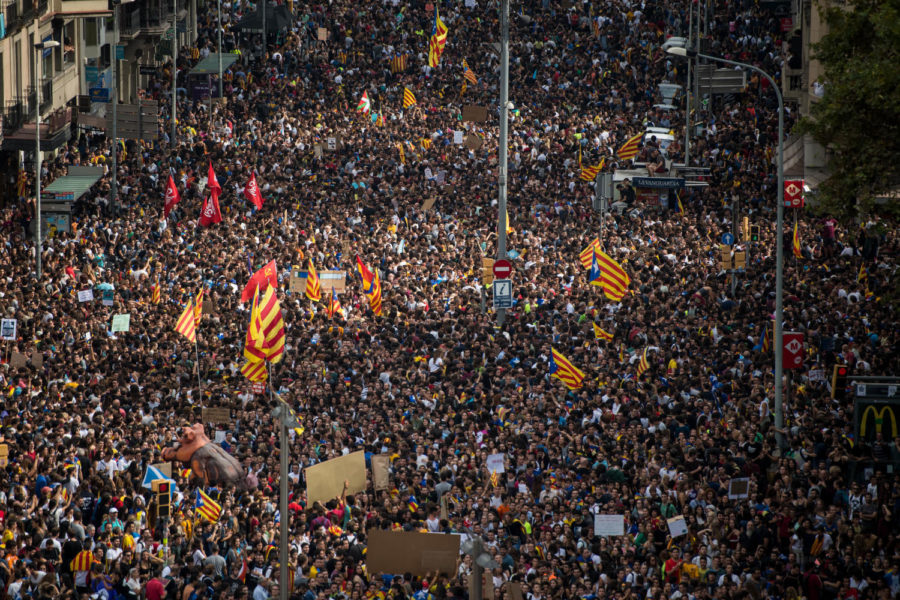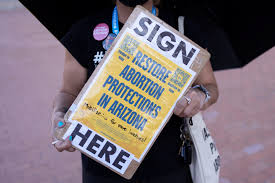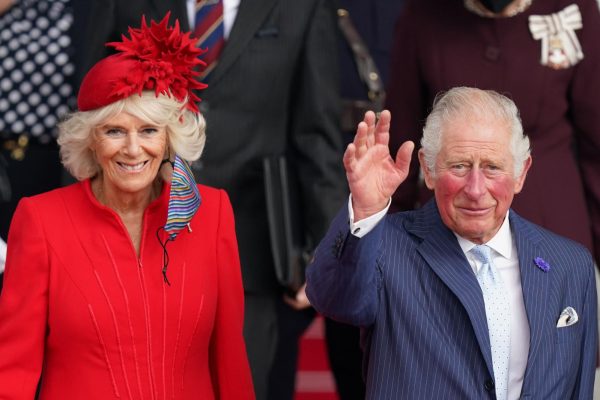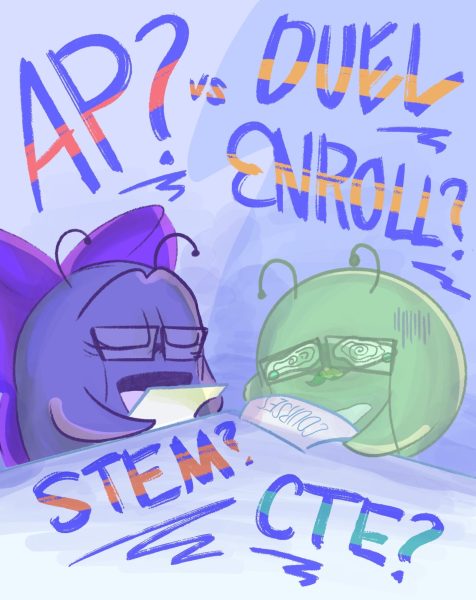The 2017 Catalan Referendum
October 13, 2017
Throughout modern history, there have been countless struggles for national self-determination of various peoples. These struggles are almost always met with violence from the nation’s overlord, as they feel their desire to continue their subjugation is more important than people deciding for themselves how they should be governed. In Brittany, Northern Ireland, and Palestine, attempts at creating an independent nation were deemed illegal and crushed by government forces. One of the most recent examples of this is currently happening in the region of Spain known as Catalonia with its independence referendum that took place on 1 October 2017 and was met with intense repression from the Spanish state.
Catalonia is a semi-autonomous region in northeastern Spain that gained political and cultural independence in the 1978 Spanish Constitution that was created after the end of the fascist Franco regime. The constitution guaranteed certain rights to Catalonia, such as their own parliament, police force, and various other institutions that would normally appear in an independent state. However, the Spanish government in Madrid still maintains a degree of final authority over Catalonia. As a result of this, modern Catalonia’s aspirations towards independence have been discouraged by the Spanish state.
Modern Catalonia’s attempt at full autonomy began in 2014, with a referendum to gauge support on how well an independent Catalonia would be received by the populace. When the votes had been counted, more than 90% of those who voted said they wanted Catalonia to become a state, and 80% of voters wanted this state to be independent of the Spain. Despite overwhelming support for freedom from Madrid, the Spanish government declared that it would block the 2014 referendum effort. Regardless, the vote took place in defiance of the Spanish government. This was the beginning of rising tensions that would lead to the outbreak of violence by Spain towards the people of Catalonia in the 2017 referendum.
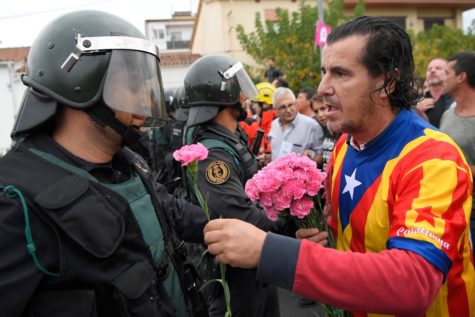
During the days leading up to the election, the Spanish police and the Guardia Civil used extreme violence and force in an attempt to dissuade Catalonian citizens from participating in the referendum. Police stormed polling stations, stealing ballot boxes and assaulting civilians who dared to stand up against state violence. Clubs and rubber bullets were the main tools of force used by the police, as they left a staggering 844 Catalonian citizens injured. To make things worse, the international community, including the European Union and the US government, condemned the actions of those participating in the referendum, and stood and watched as the Spanish state repressed the democratic desires of the people of Catalonia.
As of 11 October 2017, the President of Catalonia formally declared independence, but left it suspended until further talks with the Spanish Parliament. This means that the aspirations of the Catalonian people have been held off until the Spanish state and their own discuss the terms of their autonomy without their consent. Catalonia’s independence movement is being co-opted by the established neoliberal government and far-right sects of the government, while the working class is excluded from negotiating the terms that will affect them the most. While Catalonia has the right to determine for itself how it shall be governed, an organized leftist movement of the Catalonian proletariat must have greater say in demanding a better economic system that will prevent the strife they have gone through in attempting to create an autonomous society.

